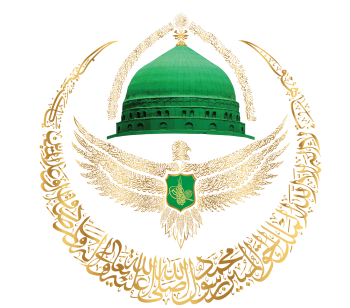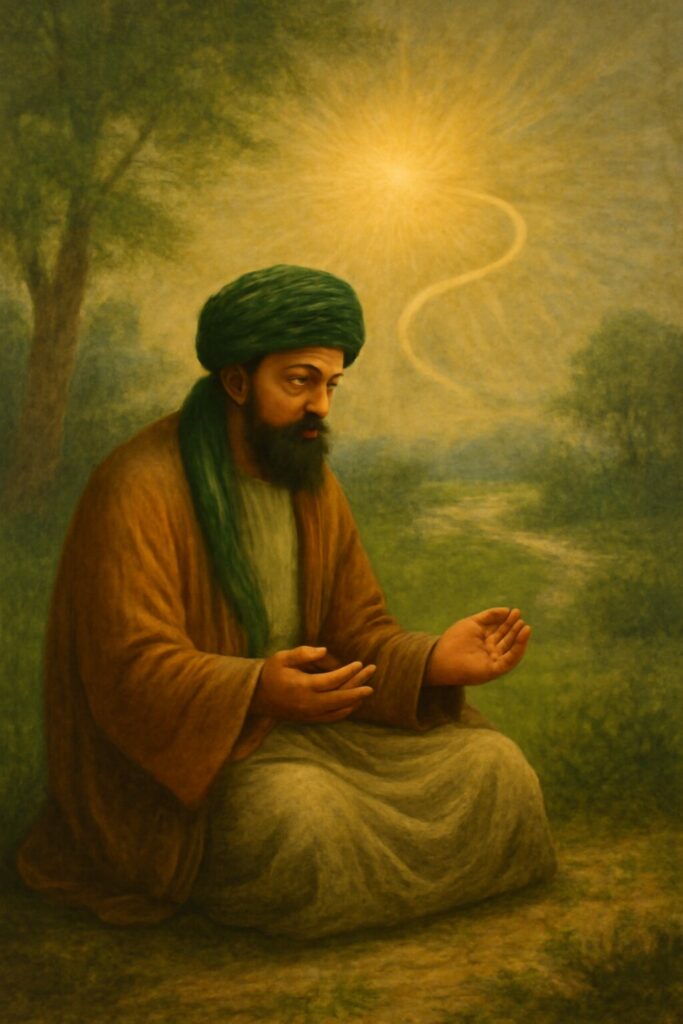Sufism: The Science of Knowing Allah and Its Connection to the Human Soul
His Excellency Sheikh Muhammad Al-Kasnazan (May Allah Sanctify His Soul) defines Sufism as the science of knowing Allah, the Most High. This science seeks to reach the absolute truth, which is beyond anything else, and this journey begins with knowing the human soul. The constant foundation in Sufism is the well-known saying: “Whoever knows himself, knows his Lord.” Thus, there is a cognitive connection between the absolute truth (Allah) and the confined truth (the soul). This connection between Allah and the soul is often referenced by Sufis in their writings, especially when discussing the first creation and how Allah breathed His spirit into Adam. By this breath, humans were distinguished from other creatures, and it became their means for divine knowledge.
Sufi Knowledge: More than Just Information
Knowledge in Sufism does not just mean informational or scientific knowledge, but it refers to spiritual knowledge that transcends sensory dimensions. For example, a person cannot truly know the divine attribute of hearing unless they have experienced some of this divine absolute quality. Additionally, the sacred Hadith indicating that Allah grants His servant His hearing, sight, and hand when they approach Him with voluntary acts is evidence of how a person experiences divine attributes in their life. Allah says in the sacred Hadith: “My servant does not draw nearer to Me with anything more beloved than what I have obligated upon him, and My servant continues to draw nearer to Me with voluntary acts until I love him.”
Fana (Annihilation) in Allah: Reaching Divine Power
Fana in Allah is a stage of knowledge that a servant can reach when they transform from limited human ability to unlimited divine power. At this point, the servant can perceive and act with divine power, enabling them to do what is beyond human capability. This spiritual power, as Sheikh Muhammad Al-Kasnazan (may Allah sanctify his soul) describes it, is non-material and cannot be verified by the scientific means available. It is a force that cannot be measured in sensory dimensions.
Spiritual Power: A Spiritual Awareness Beyond Matter
Islamic Sufism and the Khasnazani method operate from a unique view of the universe and existence. This spiritual view transcends the limits of matter and concerns an awareness that is transcendent of matter. This awareness is considered by Sufis as a continuous thread in the fabric of all material existence. This spiritual awareness allows a person to communicate between material and immaterial worlds and is embodied in the spiritual power possessed by the Sheikh of the Khasnazani path.
The Muhammadan Light: The Spiritual Mediator Between Allah and Creation
The Muhammadan light, as described by Sheikh Al-Kasnazan, is the light that derives its existence from Allah Himself and provides existence to worlds and creatures. This truth is the spiritual mediator between Allah and creation. It is the energy that connects the Creator and the created and opens the way for spiritual knowledge through the Muhammadan light.
The Path in Islamic Law: Sufism as Part of the Religion
The traditional question is raised as to when the path appeared in Islam, and why it was not clearly mentioned in the life of the Prophet ﷺ? Sheikh Muhammad Al-Kasnazan (may Allah sanctify his soul) answers this question by saying: “The term ‘the path’ was not well-known during the time of the Prophet ﷺ, but it was essentially present in his life and among the companions.” The path existed in an unnamed form in the early period, but the term ‘path’ was only introduced after the need for it arose in later centuries.
The Path and the Pillars of Religion: Application of Islam, Faith, and Excellence
The path is not merely the application of the station of excellence (Ihsan), as some believe, but it is the comprehensive application of the three pillars of religion: Islam, faith, and excellence (Ihsan). True knowledge and complete adherence to the religion of Allah is through these pillars, and they represent the ideal application of these pillars in an integrated manner. According to Sheikh Muhammad Al-Kasnazan, the path is the ideal spiritual expression that embodies these pillars practically.
Uprightness: Balancing Faith and Action
Uprightness is the balance between faith and action, and it is the achievement of moderation in behavior and ethics. Sheikh Muhammad Al-Kasnazan (may Allah sanctify his soul) says that uprightness requires the Muslim to be upright in their behavior and to apply their faith in their practical life. In the Hadith, it is asked of the Muslim to say “I believe in Allah” and then to “be upright,” which connects belief and behavior closely.
The Straight Path: The Practical Application of the Path
Sheikh Muhammad Al-Kasnazan (may Allah sanctify his soul) indicates that the path is the straight path that the believer follows in this world as it is in the Hereafter. The more the seeker adheres to the principles of the path and practices them, the closer they come to the straight path in their daily life and in the Hereafter. This includes staying away from forbidden actions and doubts and applying the divine instructions in their daily life, which ensures a smooth crossing on the bridge (Sirat) on the Day of Judgment.
The Path and Uprightness in Life: Applying Islamic Law
By following the path, the seeker has adhered to Islamic law completely, which guarantees uprightness in their behavior and success in this life and the Hereafter. The path is not only in worship, but it is in dealing with people, and in training the soul on faith-based values and good ethics.

